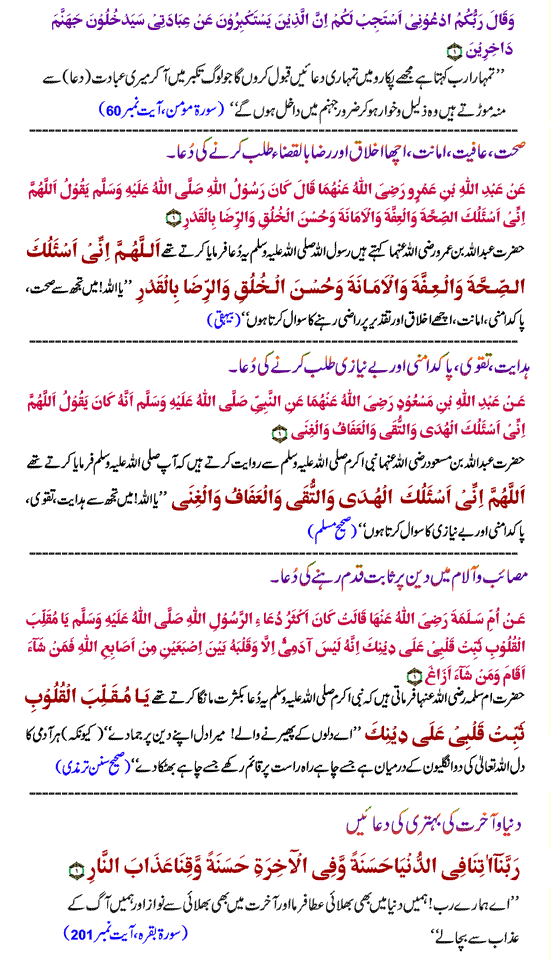In the Name of Allah Most Gracious Most Merciful Allah (swt) says: And complete the Hajj and Umrah in the service of Allah… (Al Baqarah, 196) Nabi (saw) has stated in a hadith: ‘The performance of Hajj and Umrah increase a person’s life span and eradicates poverty and sins just as rust is removed from the iron when placed in the furnace.’ (Targhib)
For this very same reason Imam An-Nawawi (rah) has written that if Allah (swt) grants the ability and guidance to a servant of His, it is Mustahab (preferred) to perform umrah frequently. (Sharah Manasik)
Hazrat Amar ibn Abassa (ra) relates: ‘Rasulullah (saw) stated that the best of deeds is the performance of Hajj or Umrah.’ (Musnad Ahmad)
It is also related in a hadith: ‘Umrah is the lesser Haj.’ (Duri Manzoor)
Abu Hurairah (ra) relates that Rasulullah (saw) stated: ‘One Umrah is expiation for the sins committed between that and the previous Umrah’ (Bukhari/Muslim) Meaning that the performance of one Umrah is the means of forgiving the sins and faults that may have been committed by an individual between that Umrah and the previous one.
Allah (swt) has determined for his servants the fact that Hajj can only be performed at its specified time, in the particular days of Dhil Hijjah. It is not possible for one to perform the rites of Hajj outside this time in any way, shape or form. However, Allah (swt) has blessed His servants with the fact that, aside from the 5 days of Hajj, there is no restriction on the performance of Umrah throughout the year.
It is narrated from Abu Hurairah (ra) Rasulullah (saw) stated: ‘The performers of Hajj and Umrah are guests of Allah (swt), if they seek something from Him, He will grant them, if they seek forgiveness He will forgive them.’ (Ibn Majah)
In another hadith it is related: ‘The performers of Hajj & Umrah are the special guests of Allah (swt), whatever they ask for they are granted and what they pray for it is granted to them and what they spend of they are rewarded for it. They are granted a recompense of 1,000,000 dirhams for the sake of 1 dirham spent.’ (Targhib)
It is for this very reason that we should, in the spare time that we have, endeavor to take our families to the blessed House of Allah (swt) and perform Umrah, stay in the blessed vicinity of the Haramain Sharifain and make it a means of attaching ourselves to Allah (swt) and his Prophet (saw), which is the foundation of our deen.
It is with these trips that one’s attention is directed towards the Akhirah and children are given the motivation to do good deeds and strive to improve their understanding of deen.
It is however unfortunate that in this day and age, due to not being aware of the blessings of such actions as Umrah, we prefer to take our families to the seaside where there is nudity and immodesty. The viewing of which removes hayah (modesty & bashfulness) from our wives, children and loved ones.
My friends, take heed, that those for whom you are responsible, who you take to/allow to go to places of immodesty, it is a right upon you that you teach them correct manners and etiquettes, in accordance with the Qur’an & Sunnah. The propagation and calling towards avenues other that those which are permitted in Shariah is against the orders of Allah (swt) and the teachings of his final Messenger (saw).
Allamah Mahmood Aalosi Baghdadi (rah) has related a hadith in his book: ‘On the day of Qiyamah, a few people (on whom the decision of Jahannum will be manifest) will be in such a state that by looking at them, the others will say… ‘these were those who did great feats of worship, but their loved ones devoured their deeds.’ (Roohul Ma’ani)
May Allah (swt) protect our Iman and grant us the guidance to do good deeds, Aameen Al –Kauthar
Mufti Yusuf Danka Al-Kauthar




